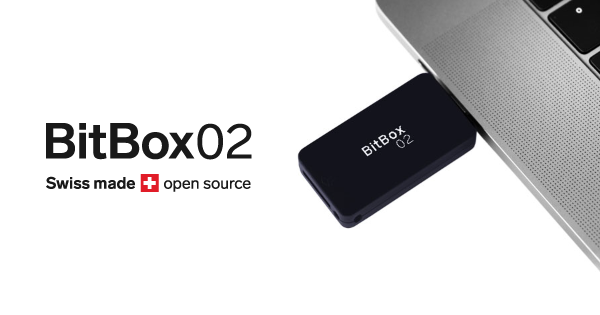Bitcoin a primer
What is Bitcoin? Satoshi Nakamoto, the mysterious person, or group behind Bitcoin, called it “A Peer-to-Peer Electronic Cash System” in Bitcoin's whitepaper. So what does this mean? Let me explain. In our current financial system with credit cards, PayPal and banks we have to use multiple intermediaries when we want to transfer value from one Person to another digitally. Let’s say Alice wants to send $100 to Bob. She can now use her bank account and instruct her bank to send this money to Bobs bank which will then add these $100 to Bobs account. The process now was Alice -> Bank of Alice -> Bank of Bob -> Bob. On a side note, Alice was not in control of the $100, the bank was, but I will leave this aspect about our financial system for another day. So now Alice was able to send money to Bob. If Bob were a merchant and Alice wants to buy a new toaster at his store with her credit card the process would involve even more third parties. We would have the credit card companies, the banks, the company behind the point-of-sale system and some others as well. In short, a lot of stations are necessary to facilitate this transfer from Alice to Bob.
So what makes Bitcoin peer to peer and why is it different. In Bitcoin the only “intermediary” is the Bitcoin network itself (it’s less an intermediary than more of a way to verify that the coins you receive are valid). We are able to send bitcoin to another person simply by knowing their address (we will cover the exact technical aspects a bit further down the road as this is a whole blog post in itself). On a high level what happens is Alice uses a secret that only she knows to sign a transaction in which she gives ownership of the bitcoin to the address of Bob. In this trnasaction she verifies that she was the previous owner and that she wants to give the coins to Bob. She then broadcasts that information to the network. Once the information was added into a block Bob has the bitcoin in his control. As you can see Alice didn’t need any bank or credit card issuer to allow her to facilitate the transaction - Bitcoin functions like cash. When we think about cash everybody can just give a bill to another person without intermediaries who have to be trusted. Bitcoin only requires trust in its underlying mathematics, not people. In that sense Bitcoin is a bearer asset, just like gold and to a large degree cash.
It is important that bitcoin is a bearer asset. A bearer asset allows the holder to act and spend without counterparty risk and without permission of a third party. When we think about the money in our bank accounts the bank can and will block a transfer if they don't agree with the transaction that you want to make. They will ask you many questions if you want to withdraw "larger" amounts of cash (in western countries this will start at around $10,000, in other countries they will simply not allow you to withdraw such amounts). All in all you are not free to act with your fiat money as you wish.
Let’s talk about what this enables. With the permission-less nature of Bitcoin, everybody gains access to a system in which he/she can exchange value with others. This applies to both the freedom fighter and the criminal next door. The Bitcoin network is completely neutral and it does not censor any transactions from anybody. Some people think it’s a problem that anybody can use it regardless of the intentions, they see Bitcoin’s neutrality as a bug. They tend to argue that Bitcoin is used only by people who are involved in criminal activity and so on (we will discuss this fallacy in a later publication). I on the other hand think Bitcoins neutrality is a feature. Many people who like and talk about Bitcoin tend to compare Bitcoin to a tool or a common good. At the current time it would seem ridiculous to advocate for a general ban on cars, knives or the air we breathe. Yet criminals use cars as getaway vehicle, knives to stab other citizens and breathe air while they commit crimes. I hope you agree with me that heavily legislating any of the mentioned things would seem quite insane. Billions of people use cars to get to work, visit their families and to do heavy duty work. Knives are a useful tool for cooking and virtually every human has already used one. So banning Bitcoin – a tool which has the ability to help billions achieve financial sovereignty – seems just as ridiculous to me as would banning cars to other people.
Bitcoin is neutral and stable, it is only our view onto it which will change. We can all advocate for banning it but Bitcoin will very likely move on. It is almost impossible that it can be shutdown absent of a global North Korean state and I'm not even sure that they would be able to completely shut it down. Bitcoin's antifragile properties are as well a whole discussion of its own.
As you can see, I have already touched upon several different topics and there’s still so much more which I haven't mentioned. This post has barely outlined the skeleton of Bitcoin and I want to dig deeper into the different aspects of Bitcoin in coming posts.
Until next time. Stay humble and stack sats.
Support this blog
Subscribe and share this blog with your friends if you enjoy this content and find it helpful.
To stack sats I use the 21BitcoinApp. If you use the code SNBLOG you will receive fees starting from 0.79% instead of 0.99%. I will receive a bit of the fees from 21Bitcoin.
The Bitbox is the perfect way to secure your Bitcoin. I use the BitBox 02 Bitcoin-only edition as my cold storage. By buying with my link you can support me and this blog. Use the code "SNBLOG" to get 5% of your purchase.
https://21bitcoin.app.link/invite/?code=SNBLOG

